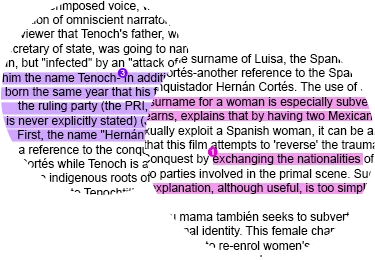How to Recognise and Use Uncountable Nouns?
Published by at August 17th, 2021 , Revised On December 13, 2022
Uncountable nouns refer to abstract ideas, substances,s or concepts that cannot be counted unless expressed with a unit of measurement. For example, we cannot count gasoline. We can count cans of gasoline or gallons of gasoline, but we cannot count the gasoline itself.
Uncountable nouns are also known as noncount nouns or mass nouns. On the other hand, countable nouns are those that can be counted as distinct items.
Uncountable Nouns Examples
- Money, currency
- Power, gas, electricity,
- Water, butter, sugar, rice
- Luggage, furniture
- News, information, suggestion, recommendation
- Happiness, love, art, music
- Lightning, radiation, traffic, feedback, gravity, speed, logic, research, knowledge
As mentioned above, uncountable nouns should always be treated as singular verbs. For example,
- This research is of paramount importance for scientists.
- Let’s move the furniture to our new house.
- The water moves from the high point to the lowest point.
Uncountable nouns do not use indefinite articles (a or an), and they cannot be pluralized. This rule will help you quickly identify uncountable nouns.
For example,
- A piece of information
- A grain of sand
- A jar of jam
We can also use “any” and “some” with noncount nouns.
For example,
Can you share some information?
Do you have any money on you?
We can also use “much” and “a little” with uncountable nouns.
I haven’t got much information about this service.
All I need is a little love.
The following table presents a comparison of countable nouns vs uncountable nouns.
| Uncountable Nouns | Countable Nouns |
|---|---|
| Scenery | View |
| Work | Job |
| Travel | Journey |
| Advice | Tip |
| Information | Report |
| Milk | Glass |
| Electricity | Battery |
| Furniture | Chairs |
| Luggage | Bags |
| Music | Tracks |
| Money | Pounds |
Calculate your Plagiarism Score
Compare your paper against millions of publications and billions of web pages.
- The most advanced plagiarism tool
- Detect plagiarism and generate similarity report
- Largest database

What is the Partitive Structure with Uncountable Nouns?
It is possible to count uncountable nouns by using units of measurement. For example, we cannot quantify milk, but we can quantify glasses or bottles of milk. By specifying the unit of measurements, such as glasses or bottles, we can determine the quantity of milk being referred to. Expressing the uncountable nouns and the unit of measurement in a structure like “five bottles of milk” or “two slices of cheese” is known as the partitive structure.
| Partitive structure | Quantity | Unit of measurement | Of | Uncountable noun |
|---|---|---|---|---|
| Examples | Five | bottles | Of | Milk |
| Two | Slices | Of | Cheese | |
| Several | Drops | Of | Liquid |
It is also possible to express the same uncountable noun through different partitive structures, and each will have a different meaning. For example, you could say “a block of cheese” or “a slice of cheese’. Both are partitive expressions with different meanings.
Here are some more examples of uncountable nouns in sentences:
- Make sure to buy a bag of wheat for me from the grocery store.
- You can never count the drops of water in the ocean.
- John decided to give away some items of clothing to the poor.
- Bring me two glasses of milk.
- I need four gallons of gasoline for my truck.
- Can I have two cups of tea, please?
Nouns That Are Both Countable and Uncountable
Some nouns can be both countable and uncountable. For example,
| Noun | Countable | Uncountable |
|---|---|---|
| Work | This is an important piece of scientific work. | I have no work, so I am broke. |
| Time | I have no time to argue with you over this matter. | Do you have time for a quick telephonic discussion? |
| Room | There are five rooms in my house. | Do you have room for another person? |
| Paper | How many academic papers you have written? | Can I have some paper? I want to make some notes. |
| Noise | I thought the noise might be useful in terrorem. | There is so much noise that I am unable to concentrate on my work. |
| Light | There are a couple of lights in the garage. | There is always light at the end of the tunnel. |
| Hair | I found two white hairs in my meal. | I have lost my hair considerably. |
| Currency | The GBP (Pound Sterling) is a valuable currency. | The expression gained wider currency after 2010. |






